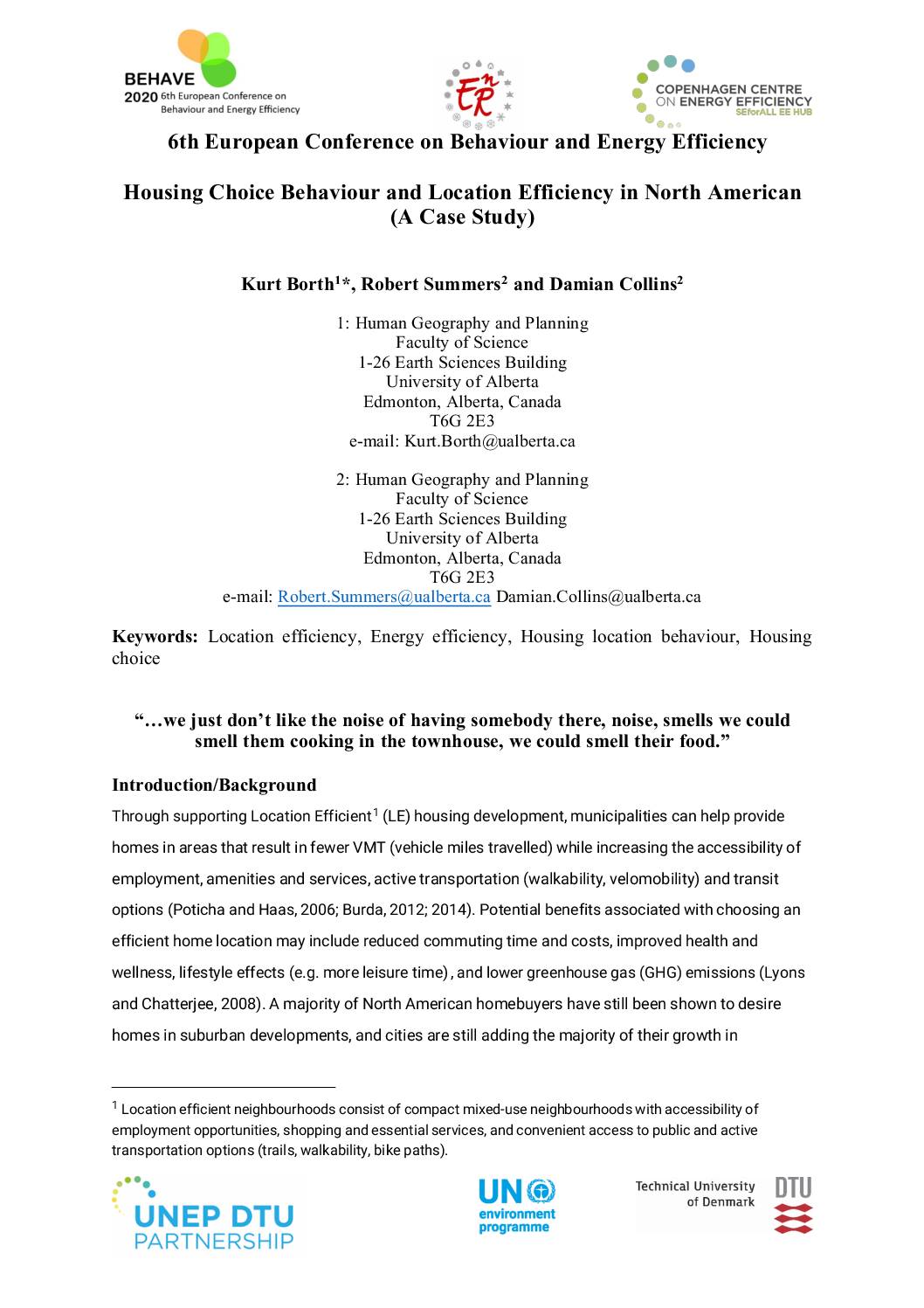Through supporting Location Efficient1 (LE) housing development, municipalities can help provide homes in areas that result in fewer VMT (vehicle miles travelled) while increasing the accessibility of employment, amenities and services, active transportation (walkability, velomobility) and transit options. Potential benefits associated with choosing an efficient home location may include reduced commuting time and costs, improved health and wellness, lifestyle effects (e.g. more leisure time) , and lower greenhouse gas (GHG) emissions. A majority of North American homebuyers have still been shown to desire homes in suburban developments, and cities are still adding the majority of their growth in these types of developments. In order to decrease transportation energy use, GHG emissions and infrastructure costs associated with new suburban development, municipalities are attempting to promote the development of and the demand for homes that are closer to employment centres and along transit corridors (location efficient development).
Home location choice has been studied by diverse disciplines, yet little is known of how location efficiency factors into home location choice. A growing group of homebuyers are seeking easy access to amenities, services, employment and frequent destinations that are associated with location efficient neighbourhoods. These housing location preferences appear to be out of line with current development trends as homebuyers rather live in a more location efficient home, yet traditional suburban development still continues unabated in North America and other parts of the world. This research was undertaken to investigate the factors that influence home location choice with regards to location efficiency and to consider participants’ inclusion of location efficiency in their home location behaviour.
Download sourceShare this

Sectors: Buildings, Cities
Country / Region: Northern America
Tags: cities, economic cost, emissions, energy, energy efficiency, health sector, human health, inclusion, infrastructure, international developmentIn 1 user collection: Session 2b: Behavioural insights for end-use energy efficiency in buildings
Knowledge Object: Publication / Report
Publishing year: 2020
Author: Kurt Borth, Robert Summers, Damian Collins
Content:

